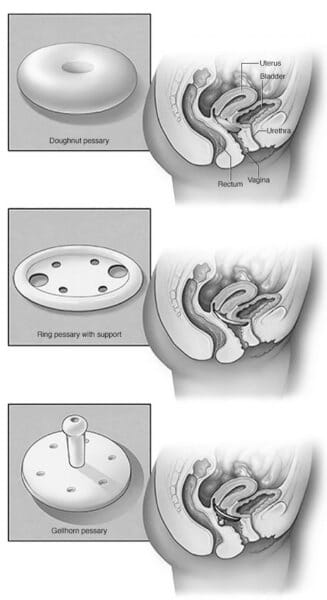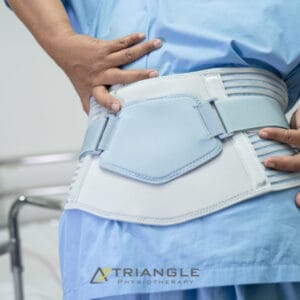
What is Pelvic Organ Prolapse (POP)?
Pelvic organ prolapse is an annoying protrusion (bulge) within the vaginal canal caused by a decreased integrity of the muscles that make up the vaginal wall. Some prolapses cause annoying bulge sensations at or around the perineum, others may be completely asymptomatic. Most do not cause pain. Symptomatic POP’s are aggravated by standing, lifting, or bearing down. and relieved by lying down. Additional symptoms may also be urine retention and alterations in bowel function.
Take a moment to ask yourself:
- Do you have a sensation of heaviness in your vagina or rectum
- Do you have difficulty initiating your urine flow?
- Do you have to strain in order to have a bowel movement or to urinate?
- Do you have discomfort/pain during intercourse?
- Does it feel like your “insides” are falling out?
- Has your doctor said that you have a prolapsed pelvic organ?
- Are you constipated?
Then you may have a prolapse. There are several pelvic organs that can protrude into the vaginal canal:
- Cystocele: Prolapse of the bladder
- Rectocele: Prolpase of the rectum
- Urethrocele: Prolapse of the urethra
- Uterine prolapse: Prolapse of the uterus
- Vaginal Vault prolapse: Prolapse of the top of the vagina after a hysterectomy
- Enterocele: Prolapse of the intestines
A thorough assessment by a pelvic floor physical therapist will identify which organ and determine your best treatment plan.
You should be evaluated by your family doctor, gynecologist, or pelvic health physical therapist if you suspect that you have a prolapse. Most prolapses can be treated using conservative strategies including postural correction, constipation management, toileting positions, and pelvic floor exercise. For higher grade prolapses a pessary fitting may be appropriate. Surgery is often only considered as a last resort.
Book your appointment to see a pelvic health physiotherapist today.


